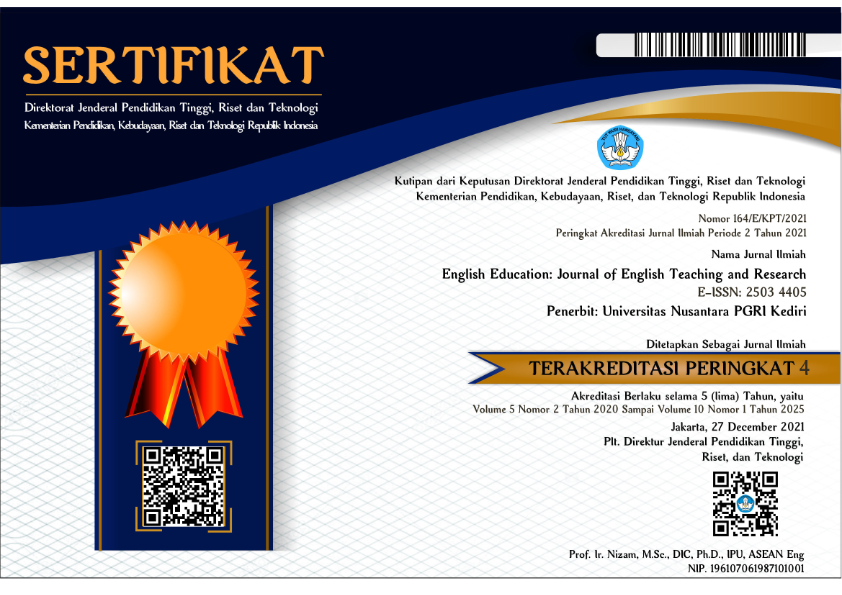PROMOTING MIND-MAPPING TECHNIQUE TO IMPROVE NURSING STUDENTS’ WRITING SKILL
DOI:
https://doi.org/10.29407/jetar.v1i2.474Abstract
A teacher can use many ways to make students easier to study writing. Mind-mapping is a way to solve problems in writing. This technique is chosen since it has many advantages. The main benefit is that it uses both halves of the brain which makes it easier to remember. Moreover, making mind-mapping is a creative process and a natural way to organize the thoughts and it is widely believed to ease a pathway towards successful communication. Nursing students mostly do not pay attention to their writing skill. There are some indications which show the students’ poor ability in writing, such as; the students do not organize their writing well, their ideas are not coherence, they do not use right tenses in the right context, they have lack of vocabulary and their understanding of mechanic is low. They also think that time for writing is limited. Because of these, they become unmotivated and have low interest in writing. Some students even give up and do not try to solve their problem. In this paper, the writer wants to describe the use of mind-mapping technique to build up a good writing practice as an alternative teaching learning process and to activate the students’ participation in the classroom.
Keywords: Mind-Mapping Technique, Writing Skill.
Downloads
Downloads
Published
Issue
Section
License
Authors who publish with this journal agree to the following terms:
- Copyright on any article is retained by the author(s).
- The author grants the journal, the right of first publication with the work simultaneously licensed under a Creative Commons Attribution License that allows others to share the work with an acknowledgment of the work’s authorship and initial publication in this journal.
- Authors are able to enter into separate, additional contractual arrangements for the non-exclusive distribution of the journal’s published version of the work (e.g., post it to an institutional repository or publish it in a book), with an acknowledgment of its initial publication in this journal.
- Authors are permitted and encouraged to post their work online (e.g., in institutional repositories or on their website) prior to and during the submission process, as it can lead to productive exchanges, as well as earlier and greater citation of published work.
- The article and any associated published material is distributed under the Creative Commons Attribution-ShareAlike 4.0 International License








 Article template
Article template



